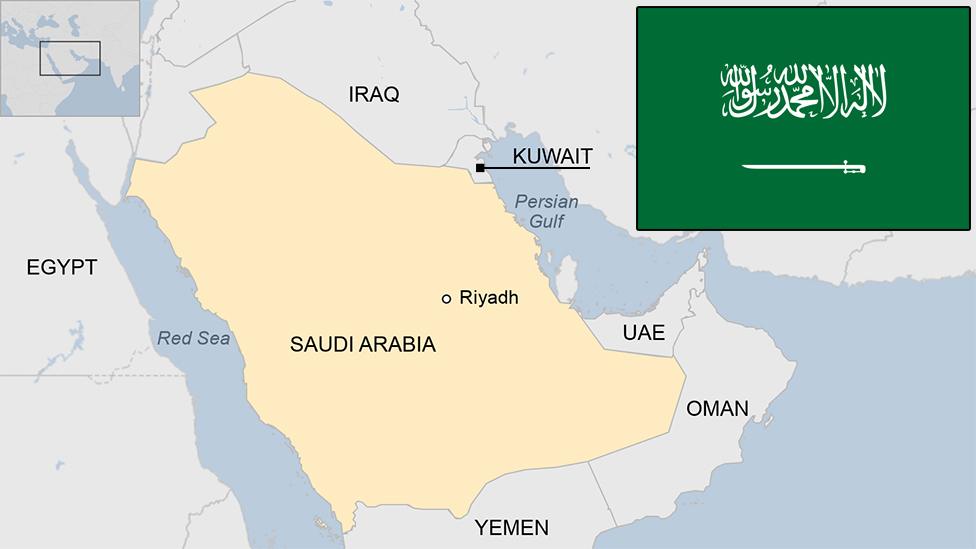Analysis: Saudi Arabia faces complex regional challenges
- Published
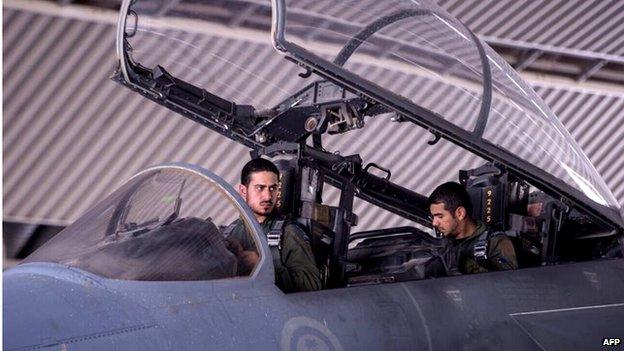
Saudi Arabia's involvement in the US-led coalition has been criticised within the kingdom
Saudi Arabia - for years the world's biggest oil exporter, home of a long-ruling dynasty and key Western ally - is facing multiple challenges on its doorstep and is having to adapt, writes Gulf analyst Neil Partrick.
Since signing up to the US-led coalition against Islamic State (IS) in September, Saudi Arabia has been combating the extremist Sunni insurgent group in Syria with an uncharacteristically assertive military stance and PR campaign. Meanwhile, on its southern border - and much closer to home - its allies' control of Yemen has weakened in the face of forces friendly to Shia Iran, the kingdom's regional rival.
Saudi fighter pilots are bombing IS while the normally cautious Saudi state machine is trumpeting it. However, this is not without risk. Some Saudis have used social media to declare war on those who kill Muslims, and one particular image of Saudi bomber pilots that has attracted abuse includes a son of the crown prince.
Most Saudis welcome their country's pro-active role, even if alongside the non-Islamic US. However, the self-styled coalition's Western components are also actively bombing in Iraq where the casualties are not just blood-thirsty expansionist IS fighters, but ordinary Sunni Muslim civilians.
Many Saudis, including some close to the government, do not think that bombing Sunni Arab areas in either Iraq or Syria advances the interests of a Sunni Arab kingdom. After all, they know that local Sunni Arab discontent allowed IS to incubate in Iraq.
Some Saudis see their country (and the UAE, Jordan and Bahrain) as Iran's proxy air force, bombing opponents of Syrian President Bashar al-Assad.
Saudi Arabia and its Gulf Arab allies argue that their struggle is against President Assad and his inner circle. However, neither the Saudis nor their regional and Western allies are actually targeting the Syrian regime.
Brewing tensions?
Mr Assad is trumpeting his struggle against IS too, and what he considers their effective allies: the Gulf-backed Syrian rebels, the most able of which are Sunni Islamist, whether self-styled "Islamist-lite" or unapologetically hardline militants.
The coalition's aerial targeting in Syria has included the local al-Qaeda affiliate, al-Nusra Front, which in 2013 rejected a merger with IS.
Al-Nusra has allegedly received support from both Qatar and Turkey, and has fought battles against IS and on occasion collaborated with the Western- and Gulf-backed Free Syrian Army (FSA).
Gulf-aided Syrian Islamist rebels opposed to IS are against the air strikes. So, in joining the bombing raids, Saudi Arabia might be cutting off its nose to spite its face.
Then there is the accusation that, as the supposed ultra-conservative "Wahhabi Central", Saudi Arabia is the ideological source of the IS demon seed.
Those close to the Saudi government refute this, talking up the tradition of Saudi religious scholars deferring to a perceptibly legitimate "imam", the King.
Rebellion, they assert, is more in the Shia tradition, as evidenced by the Iranian revolution and the violent past of Dawa, the Iraqi Shia Islamist party to which Prime Minister Haider al-Abadi and his predecessor Nouri Maliki belong.
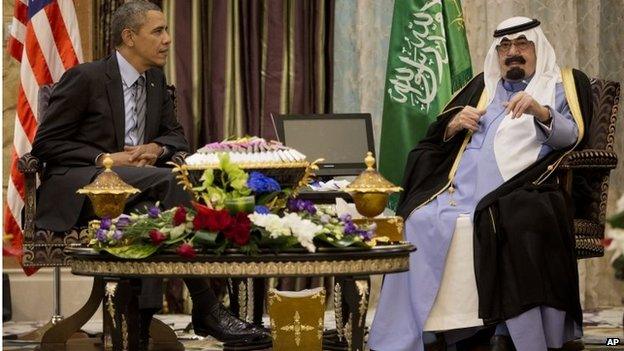
Barack Obama visited Saudi in March amid a strain in ties
In truth, quietism - or "rendering unto Caesar what is Caesar's" - is well-established in both the Sunni and Shia tradition, and, with some notable exceptions, has held firm in Saudi Arabia.
US President Barack Obama has criticised allies who profess to be fully on board but from whose country the extremists find succour.
He also argues that individual rights - and the rule of law - are the best way to drain the ideological swamp. It is unlikely that he is holding his breath any more than the Saudis believe that the US and its European allies will remove Syria's president.
The Saudis argue that Mr Assad has been soft on both IS and al-Nusra for instrumental reasons: they kill his FSA and Islamist enemies.
Islamic State's continued existence and ideological objection to his "secular" state enables him to argue that he too is part of the coalition of the willing.
Iraq is off-limits for Saudi air force bombers. In fact, Saudi Arabia hopes to encourage Iraq to return to the "Arab fold".
However, Iranian-backed Shia militants in Iraq and in Syria are killing Sunni Arabs, whether IS supporters or not. As a former top Iraqi official argues, these militants will be the ones to destroy IS on the ground.
Multiple issues
Saudi Arabia is in a messy situation. By bombing US-approved Islamic State targets, it is probably acting in its national interest. The kingdom was created by erasing existing intra-Arabian boundaries, but soon became a status-quo power.
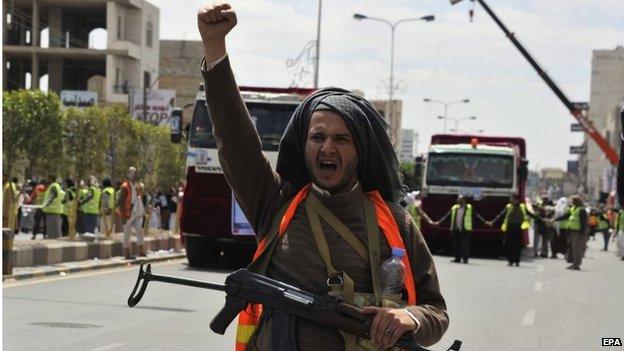
The rise of Shia rebels in Yemen has heightened Saudi fears
An Iraq whose leadership it doesn't trust, and a Syria whose leadership it wants replaced, are though likely to reap the benefits of the coalition campaign, assuming that the alliance that dares not speak its name - Iran, the Western powers and Saudi Arabia - prevents IS from marching on Baghdad and/or Damascus.
In Yemen, the Saudi-backed government is trying to strike a deal with Houthi rebels, whose branch of Shia Islam is distinct from that adhered to by Iranians and Iraqis but who are viewed through the prism of a sectarian regional contest.
Saudi Arabia blames Iran for the Houthis' rise, but, as in Iraq and Syria, Riyadh's inability to focus on several issues at once is also at fault.
Key positions in the Saudi kingdom are beholden to intense succession calculations and the related health of incumbents.
Another debilitating factor is their outright rejection of the Sunni Islamist Muslim Brotherhood. Saudi Arabia's allies in Yemen are weakening an already feeble central government and the willingness of Sunni tribal allies to fight for it, while al-Qaeda in the Arabian Peninsula remains a threat.
However, the kingdom has cut a key ally more or less adrift - Islah, the Yemeni branch of the Muslim Brotherhood. This has further weakened the position of Islah among allied Sunni tribal fighters.
Reaching accommodation
Troubles abound for the Kingdom, but its strategic alliance with the US, however contradictory, has been affirmed by Islamic State's expansion, even as Saudi Arabia's regional rival Iran is seen by the US as equally indispensable.
In its Yemeni backyard, a Saudi accommodation with the Houthis may be inevitable. Deals with IS are off the agenda, but a Saudi accommodation in Iraq with what the US and Iranian-backed Iraqi government can countenance is unavoidable.
In Syria, matters will be determined by what more powerful state actors than Saudi Arabia are prepared to concede to each other.
Neil Partrick is an Associate Fellow at the Royal United Services Institute (Rusi) and is currently completing a book for IB Tauris on contemporary Saudi foreign relations. Follow on Twitter @neilpartrick, external
- Published28 March 2014
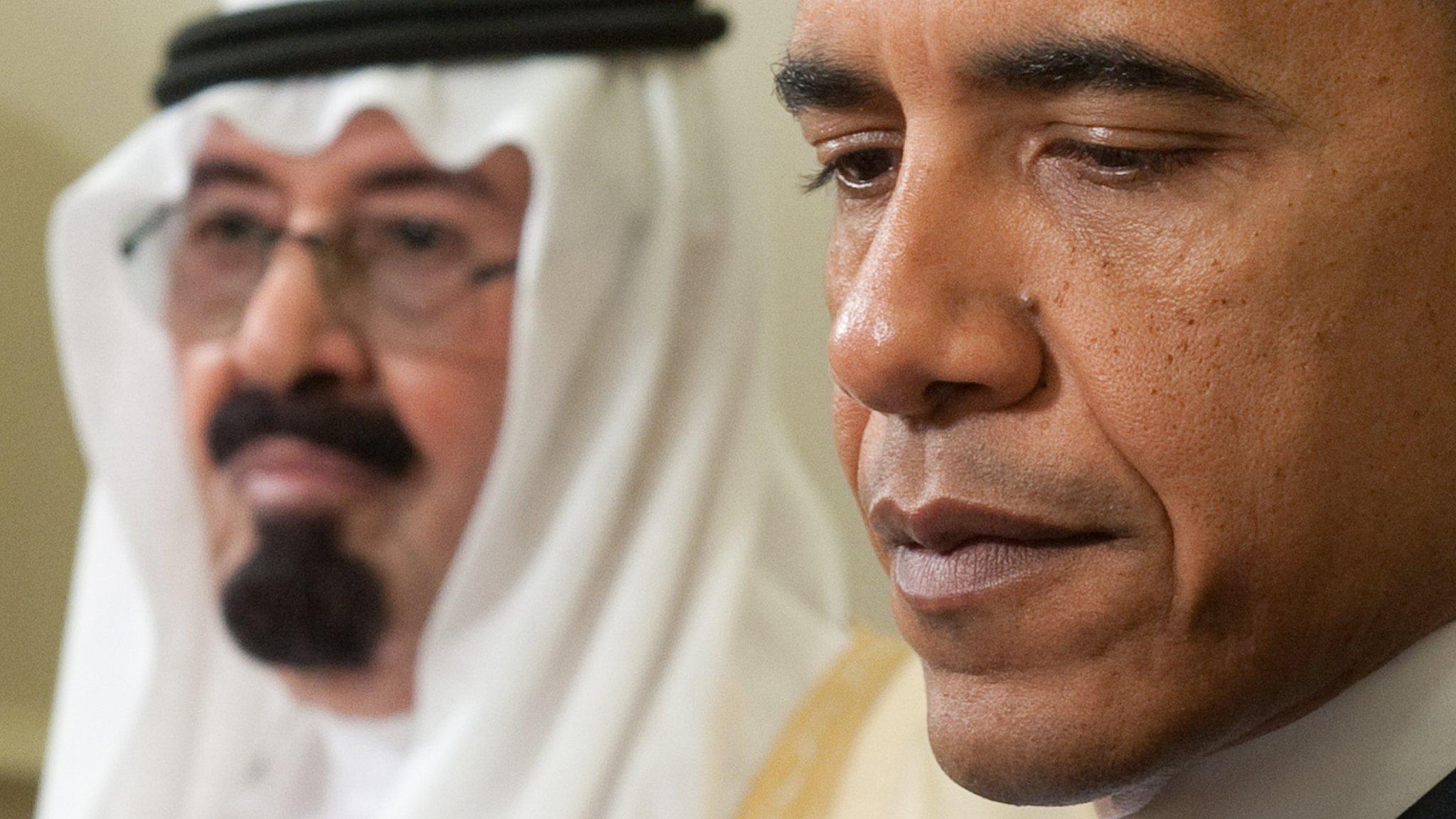
- Published13 January 2014
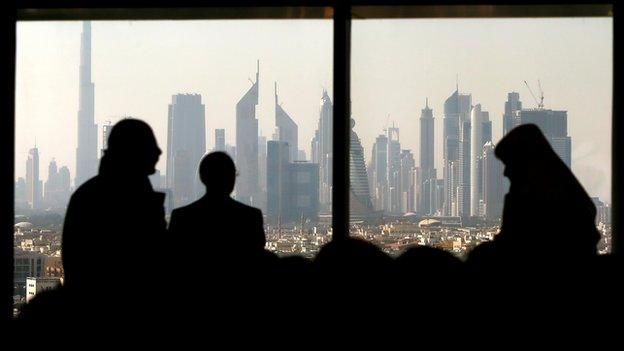
- Published1 July 2013
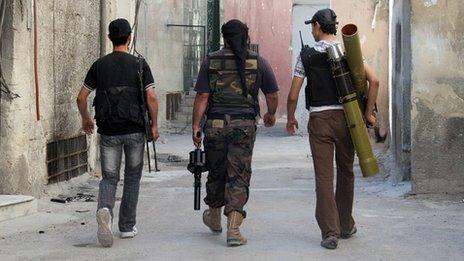
- Published29 August 2023
